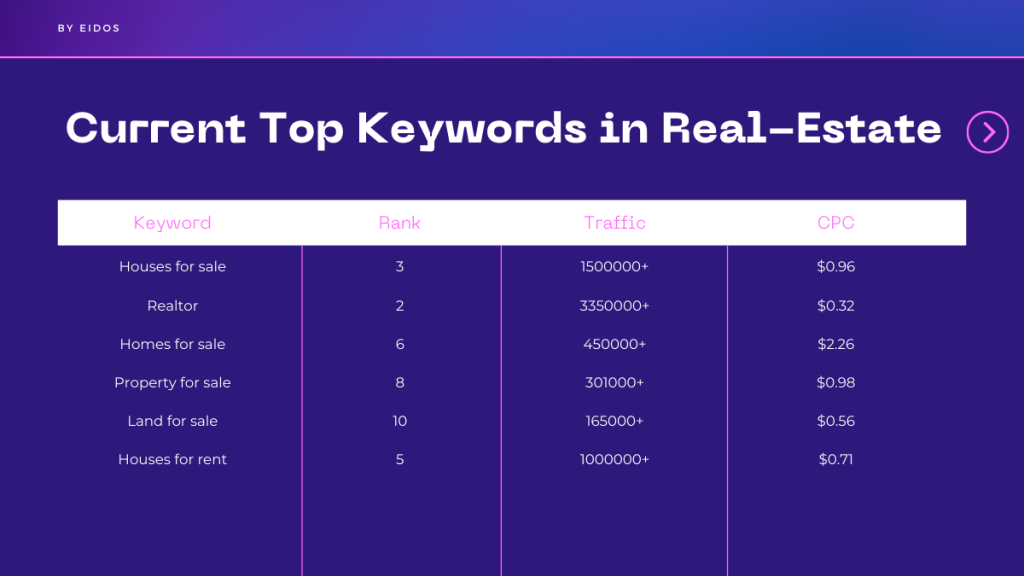Introduction
In the highly competitive real estate industry, standing out in local search results is crucial to attracting homebuyers, sellers, and renters. With the majority of property searches beginning online, real estate professionals need to adopt local SEO strategies to ensure their businesses are visible to potential clients in their target areas. Local SEO focuses on optimizing your online presence to drive more local traffic to your website, which can significantly improve your chances of generating leads and closing deals.
This article will guide real estate business owners through the essentials of local SEO, covering everything from Google Business Profile optimization to building local backlinks, on-page SEO, and more. By the end, you’ll understand why local SEO is vital for your real estate business and how to implement actionable strategies to stay ahead of the competition in your local market.
Table of Contents
- What is Local SEO and Why Does It Matter for Real Estate?
- Key Elements of Local SEO for Real Estate
- Building Citations for Real Estate
- On-Page SEO for Real Estate Websites
- Creating Location-Specific Content
- Building Local Backlinks for Real Estate
- The Role of Reviews in Local SEO
- Mobile Optimization and User Experience
- Tracking Local SEO Success for Real Estate

1. What is Local SEO and Why Does It Matter for Real Estate?
Local SEO (Search Engine Optimization) is the process of optimizing your online presence to attract more business from relevant local searches. Unlike traditional SEO, which focuses on broad visibility, local SEO is centered on promoting your business to people in a specific geographic area. For real estate businesses, this means making your website visible when potential buyers, sellers, or renters search for terms like “homes for sale in [city name]” or “real estate agents near me.”
Local SEO is critical for real estate professionals because most property searches are location-specific. When someone is looking to buy or rent a home, they typically begin with a search based on the area they’re interested in. As a result, appearing at the top of local search results can help real estate agents and brokers reach a more targeted audience, increase traffic to their website, and ultimately generate more leads. For example, if your website appears in search results for “best real estate agent in [city],” you’re more likely to attract potential clients who are ready to take the next step.
2. Key Elements of Local SEO for Real Estate
Google Business Profile Optimization
One of the most important aspects of local SEO is optimizing your Google Business Profile (GBP). This free tool allows you to manage how your real estate business appears on Google Search and Google Maps. A well-optimized GBP can help you rank higher in local search results and attract more potential clients.
Step-by-Step Instructions to Set Up GBP:
- Sign in to Google and go to Google Business Profile.
- Click “Manage now” and search for your business.
- If your business is listed, claim it. If not, add your business by entering its details.
- Fill out your business information, including your business name, address, phone number, service areas, and business hours.
- Choose the right category for your business, such as “Real Estate Agency” or “Real Estate Consultant.”
- Add high-quality photos of your office or properties to make your profile more attractive.
- Verify your business through Google’s postcard or phone verification process.
By ensuring that your GBP is complete and accurate, you make it easier for Google to recommend your business in local search results.
NAP Consistency (Name, Address, Phone Number)
NAP (Name, Address, Phone number) consistency refers to ensuring that your business information is the same across all platforms and directories. Google uses NAP data to verify the legitimacy of your business, so inconsistencies can hurt your local SEO rankings. Real estate businesses should ensure that their NAP information is consistent across their website, social media platforms, directories like Yelp, and real estate portals like Zillow and Realtor.com.
Tips for NAP Consistency:
- Regularly audit your NAP information across platforms.
- Use tools like Moz Local or Yext to manage and correct discrepancies.
- Ensure that any changes (e.g., moving to a new office) are updated on all platforms immediately.
3. Building Citations for Real Estate
Citations are online mentions of your real estate business’s NAP information. These mentions can appear on business directories, websites, and social platforms, helping to improve your local SEO rankings by confirming your business’s legitimacy and relevance in a specific area.
How to Build Local Citations:
- List your business on popular real estate platforms like Zillow, Realtor.com, and Homes.com.
- Include your business on local directories such as Yellow Pages, Google Business Profile, and Yelp.
- Engage with community pages by getting featured on local blogs, chambers of commerce, and neighborhood association websites.
The more authoritative and relevant the citation, the more beneficial it will be for your local SEO. You can use tools like Moz Local and BrightLocal to manage your citations efficiently and ensure they remain up-to-date across all platforms.
4. On-Page SEO for Real Estate Websites
On-page SEO involves optimizing the elements on your website to help search engines understand your content better. This is especially important for real estate websites where location-specific searches dominate.
Keyword Research for Local SEO
Conducting keyword research is the first step toward effective on-page optimization. By identifying the keywords that potential clients are using to search for real estate services, you can tailor your content to match their queries.
Tools for Keyword Research:
- Google Keyword Planner
- SEMrush
- Ahrefs
Types of Keywords to Target:
- Location-based keywords: These include terms like “homes for sale in [city]” or “real estate agents near [city].”
- Property type keywords: Such as “luxury condos in [city]” or “townhouses for sale in [neighborhood].”
- Real estate service keywords: Phrases like “buying a home in [city]” or “property management in [region].”
Optimizing Website Content
After selecting your target keywords, you need to optimize your website’s content to rank for those keywords.
On-Page Optimization Techniques:
- Title tags: Use location-based keywords in your title tags.
- Meta descriptions: Write compelling descriptions with a call-to-action that includes your main keywords.
- Headers and Image Alt Texts: Use H1, H2, and H3 headers with local keywords and include descriptive alt texts for images.
- Content: Create hyper-local content, such as neighborhood guides, local property trends, and market reports. Incorporating location-based keywords naturally into your content will help search engines understand that your website is relevant to the local real estate market.
Adding testimonials, real estate blogs, and local market reports also boosts your credibility and helps target local searches.

5. Creating Location-Specific Content
To attract local homebuyers and sellers, creating content specific to their location is essential. This not only helps with local SEO but also establishes your authority as a real estate expert in a particular area.
Types of Location-Specific Content:
- Property guides: Write about the best neighborhoods, price trends, and home types available in specific cities or areas.
- Market reports: Provide up-to-date data on real estate market trends in different locations.
- Local attractions and amenities: Highlight nearby schools, parks, and businesses to show the advantages of living in a particular neighborhood.
Additionally, using video content and virtual tours optimized for local search (e.g., “virtual home tours in [city]”) can help you stand out in search results and engage potential clients in a more interactive way.

6. Building Local Backlinks for Real Estate
Backlinks are links from other websites to yours, and they play an important role in SEO by signaling to search engines that your content is valuable and authoritative.
Strategies for Building Local Backlinks:
- Partner with local bloggers or news outlets to create guest posts or interviews about real estate trends in your area.
- Sponsor community events like local sports teams, charity events, or festivals to get your business mentioned on community websites.
- Engage in local outreach programs or charity initiatives to earn media coverage from local organizations.
Make sure that these backlinks come from authoritative local websites to improve their impact on your local SEO efforts.
7. The Role of Reviews in Local SEO
Online reviews, especially on platforms like Google and Zillow, play a significant role in improving your local SEO and attracting new clients.
Importance of Online Reviews:
- Google reviews are a ranking factor in local search results, meaning more positive reviews can help your business rank higher.
- Zillow reviews can build credibility in the real estate industry, influencing potential clients’ decisions.
Tips for Managing Reviews:
- Ask for reviews from satisfied clients after closing a deal.
- Respond to negative reviews professionally by acknowledging the issue and offering a solution. This shows potential clients that you care about customer service, which can positively impact your reputation and local rankings.
8. Mobile Optimization and User Experience
With most property searches starting on mobile devices, having a mobile-optimized website is essential for any real estate business.
Mobile Optimization Tips:
- Fast loading times: Ensure that your website loads quickly on mobile devices, as slow load times can lead to high bounce rates.
- Responsive design: Your website should be easy to navigate on different screen sizes.
- User-friendly structure: Make it simple for users to find listings or property details. Include a functional search bar and organized property categories.
A seamless mobile experience not only improves your SEO but also enhances user satisfaction, increasing the likelihood of converting visitors into clients.
9. Tracking Local SEO Success for Real Estate
To understand the effectiveness of your local SEO strategy, it’s important to track relevant metrics.
Tools to Track Local SEO:
- Google Analytics: Monitor organic traffic and track user behavior on your website.
- Google Search Console: Check your website’s search performance, including clicks, impressions, and average rankings.
- Local ranking tools: Tools like BrightLocal can help track your search rankings in specific areas.
Key Metrics to Monitor:
- Local search rankings: Track how well your website ranks for target keywords in your local market.
- Organic traffic: Monitor the number of visitors coming from local searches.
- Phone calls and inquiries: Measure how many leads you’re receiving from local search traffic.
By analyzing these metrics, you can adjust your SEO strategy to optimize for better performance over time.
Conclusion
In today’s real estate market, local SEO is no longer optional—it’s essential for success. By optimizing your online presence for local search, you can increase your visibility, attract more clients, and stay competitive in your market. From setting up your Google Business Profile to building local backlinks and creating location-specific content, each step is critical to improving your local SEO performance.
Start implementing these strategies today, and if you need professional assistance, consider contacting an SEO agency that specializes in real estate to help guide your efforts to the next level.

